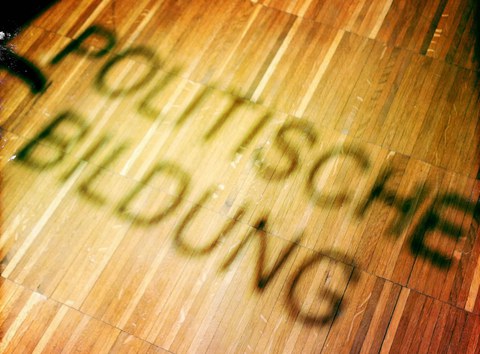Profile of the Chair
The Chair of Didactics of Civic Education has existed since the founding of the Institute of Political Science. In the first few years, it was held by Prof. Dr. Tilman Grammes (now at the University of Hamburg). From 1999-2006, Prof. Dr . Peter Henkenborg (later University of Marburg) held the professorship. Between 2006 and 2009, the Chair was vacant and was held by Dr. Herdegen (University of Regensburg).
Prof. Dr. Anja Besand has held the professorship since May 2009. As the only political didactics specialist in the federal state of Saxony, she has a wide range of responsibilities.
However, a clear focus of her work lies in the training of future social studies/politics teachers.
The Chair's core research areas can also be outlined with the help of the following questions:
- Inclusive civic education - how can civic education succeed for all people? (For old and young, academic and non-academic, traditionally close and distant and new target groups)
- What do we know about target groups beyond grammar school in school-based civic education?
- How can civic education succeed in the context of right-wing extremist and right-wing populist movements?
- What can civic education contribute to social integration?
- What can civic education learn from cultural education? (and vice versa)
- What significance do emotions have in civic education?
- What symbolic, aesthetic and cultural aspects need to be considered in political education processes?
- How can/should/must political education react to changes in the media?
Cooperation
We cooperate with various partners in the areas of research and teaching:
- Together with or on behalf of the Federal Agency for Civic Education , we carry out a variety of projects. For example, we evaluated the POLITIK IM FREIEN THEATER festival in 2014 and provided academic support for the HANISAULAND project in 2012/13. We were involved in the development of the exhibition "What do you believe? Muslims in Germany, to name just a few examples.
- The state centers for political education are also important partners for our work. In particular, the Landeszentrale Baden-Württemberg works with us on perspective workshops, conferences and events.
- Together with the Robert Bosch Stiftung and the Saxon Ministry of Education and Cultural Affairs, we have developed the project Starke Lehrer Starke Schüler (Strong Teachers Strong Students), in which we empower teachers to engage with right-wing extremist students.
- Together with Weiterdenken - the Heinrich Böll Foundation in Saxony, we founded the Center for Inclusive Political Education. There we research and explore new ways of making political education less exclusive.
- Other political foundations also cooperate with us on a regular basis. For the Konrad Adenauer Foundation in Berlin, for example, we have developed contributions to the Democracy Congress. We also have a lively exchange with the Friedrich Ebert Foundation.
- Both the Deutsches Hygiene-Museum Dresden and the Staatsschauspiel Dresden regularly allow us to hold events in their beautiful rooms. This allows us to reach a much wider audience with our events.
(These presentations show the focal points of our work and are not exhaustive in this sense)

